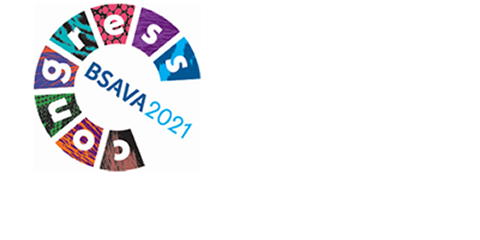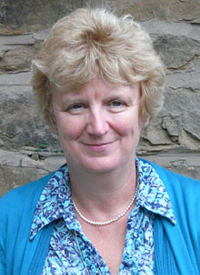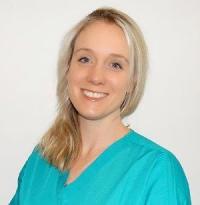BSAVA Virtual Congress 2021

Date: Thursday 25th March 2021
Venue: Virtual conference
Details
BSAVA will be holding their annual congress virtually in 2021. The Congress will bring together veterinary professionals from across the globe for an interactive event with live Q&As, keynotes and panel discussions, networking and virtual exhibitions providing latest news, products and services.
Find out more and register for the event through the BSAVA Congress website. Below are the details for RCVS Knowledge's quality improvement (QI) sessions.
RCVS Knowledge sessions in the 'Patient Safety is Not Optional' stream
Live Stream Sessions
-
Clinical audit: an important part of patient safety?
-
What are SEAs and M&Ms?
-
Are safety checklists your new best friend?
Clinical audit: an important part of patient safety - Catherine Oxtoby and Pam Mosedale (10:00 – 10:50)
Patient safety is the priority for everyone in veterinary practice, but what has clinical audit got to do with this? Well, quite a lot actually.
Clinical audit provides the tools to look at results of procedures and put preventative methods in place, making veterinary procedures safer.
Do you know the rate of post-operative complications in your practice for routine neutering and how they compare with national benchmarks?
What about anaesthetic monitoring, do you audit the process of filling in anaesthetic monitoring sheets as well as the outcomes & complications of anaesthesia?
If you use surgical safety checklists, do you audit their use and look at what the barriers are to them being used more widely?
Collecting the data is only a small part of audit. Discussing the results with the team who are involved in the work on the ground, what could be changed, what prevents current systems working as they should be, is a very important part of the audit process.
Once the team is on board and changes have been made, re-audit is vital to see if the changes have had any impact.
Implementing small changes that do make a difference can have a big impact on patient safety.
This session will introduce delegates to clinical audit and the free learning materials, case examples, and the tools that have been created specifically for veterinary teams to put into practice straight away.
What are SEAs and M&Ms – Pam Mosedale and Helen Silver Mac-Mahon (11:20 – 12:10)
SEAs: introduction and overview - Pam Mosedale
Accidents happen. Things do go wrong sometimes. Lab samples go astray. Animals escape during car park consults.
These types of events can have a lasting effect both for the patients, their owners and for the team too. Sometimes the cause of these events might seem obvious at first, but when you study the event using a formal approach known as significant event auditing, you can find the root causes. This is used in human primary care and goes beyond the clinical, looking at anything that is significant to caring for patients or running the practice.
Looking at these events is a great way to involve the whole practice team to learn from strengths and weaknesses in patient safety, animal, and client care, then to make changes if required.
The most important part of an significant event audit (SEA) is that team members understand that SEAs are about addressing systems, not about blaming individuals. They can help ensure negative outcomes do not recur and positive outcomes do! This session will introduce delegates to significant event auditing, including top tips, do’s and don’ts and free resources.
It is a fact of life that we all make mistakes, but it is how we learn from our mistakes that truly matters. By talking about adverse events, we can prevent others making the same error again and therefore improve patient care.
Morbidity and Mortality rounds (M&M’s), (also known as MMC’s- Morbidity and Mortality conferences or reviews) have been taking place in human healthcare for over a century. Their use is mandated by the Accreditation Council of Graduate Medical Education, and in veterinary medicine they now form part of the Royal College of Veterinary Surgeons Practice Standards Scheme.
M&M’s provide an open, non-judgemental, confidential, and collaborative setting for the review of adverse events. Through identification and presentation of a case where an adverse event has occurred, multidisciplinary reflective discussion, analysis, and identification of contributory factors provide a powerful tool to educate staff and improve patient safety and care.
By implementing an organised and structured approach based on a recognised M&M model with clear guidelines for staff, M&M’s can be scheduled regularly, enabling cases to be discussed soon after presentation, to ensure similar adverse events are avoided in the future.
Are safety checklists your new best friend? Angela Rayner and Helen Silver Mac-Mahon (12:30 – 13:10 pm)
Everyone knows that horrible sinking feeling when they realise that they have made a mistake but to err is human, so how can we prevent error and keep our patients safe?
In 1999, Atul Gawande suggested that at least 50% of surgical complications in people could be avoided by improving perioperative routines. The launch of the World Health Organisation (WHO) Safe Surgery Saves Lives campaign and the publication of the WHO Surgical Safety Checklist (SSC) in 2008, inspired veterinary hospitals to modify the WHO SSC for use with their surgical patients.
Studies on the success of the World Health Organisation Surgical Safety Checklist reported:
47% reduction in deaths
36% reduction in post-operative complications
48% reduction in infections
Checklists have also been found to improve communication and teamwork in the operating theatre.
Checklists are quick to perform, cheap, easily modified to suit the intended clinical environment and straightforward to implement.
On Demand Sessions
-
Best practice for infection control: COVID-19 and beyond.
-
Tackling post-op complications, including checklists and auditing
The Covid-19 pandemic has brought infection control into sharp focus. Many of the measures taken to halt the spread of Covid-19 (particularly hand hygiene and personal protective equipment/PPE) will have also been effective against hospital acquired pathogens. However, the risk from hospital acquired infections (HAIs) will still be with us once the pandemic recedes. Practices should therefore take the time to establish effective infection control measures that will protect their patients, owners, and staff. It is important to understand the most likely organisms in each practice and how these can spread in the environmental and be transmitted between animals and humans. Essential tasks include establishing an infection control team, using effective hand hygiene, cleaning, and disinfection, have high quality facilities and equipment, optimising procedures, and care, using clinical audit, and practicing antimicrobial stewardship.
Post-operative complications commonly seen in veterinary practice range from wound healing difficulties to multiple organ failure and death. Regardless of their severity, whenever post-operative complications arise, they are never welcome; let’s face it, the last thing you want to hear when reaching for your coat, after mopping the floor, hungry and tired after a long day is that the bitch spay from this morning is not doing well and needs to return to theatre as a bleed is suspected.
To reduce the rate of post-op complications clinical audits are used to support quality improvement in clinical settings. Clinical audits enable patient care to be improved by assessing and evaluating current processes in a systematic way. By selecting the correct type of audit, getting the whole practice team on board, and ensuring a blame free culture is embraced improvement strategies can be identified and implemented. The surgical safety checklist (SSC) is an example of a tool that has been proven to reduce the rates of post-operative complications.
By involving the whole practice team in tackling post-operative complications though adoption of audits and checklists the benefits quickly become obvious and real improvements in patient care can be seen.
Speakers
Pam Mosedale BVetMed MRCVS
QI Clinical Lead and Chair of QI Advisory Board, RCVS Knowledge
Pam is the QI (Quality Improvement) Clinical lead for RCVS Knowledge and Chair of the RCVS Knowledge Quality Improvement Advisory Board. Pam was Lead Assessor for the RCVS Practice Standards Scheme until very recently and has worked in first opinion practice for most of her career. Pam is also an SQP assessor for AMTRA; she edits the BSAVA Guide to the Use of Veterinary Medicines and organises the BSAVA Dispensing Course.
Angela Rayner, BVM&S PgDipPSCHF MRCVS
RCVS Knowledge QI Advisory Board Member, CVS Director of Quality Content Improvement
Angie is a small animal GP vet, having graduated from University of Edinburgh, and Director of Quality Improvement for CVS Group. She is also a member of the RCVS Knowledge Quality Improvement Advisory Board and Co-clinical Lead for their Antibiotic Stewardship Audit. In 2018, Angela began an MSc in Patient Safety and Clinical Human Factors at the University of Edinburgh. The programme supports healthcare professionals in using evidence-based tools and techniques to improve the reliability and safety of healthcare systems.
Helen Silver Mac-Mahon PGDip PSCHF CertVNECC DipAVN(Surg) CertSAN RVN
Helen is a Veterinary Nurse with more than 20 years of experience, she is passionate about patient safety and clinical human factors and is an RCVS Knowledge Champion for her role in the sustained training and use of a surgical safety checklist within the small animal theatre at the former Animal Health Trust. In 2018, Helen began an MSc in Patient Safety and Clinical Human Factors at the University of Edinburgh and she is currently researching situational awareness in the veterinary operating theatre.
Dr Tim Nuttall BVSc BSc CertVD CBiol MIBiol PhD MRCVS
Dr Tim Nuttall is Head of Dermatology at The Royal (Dick) School of Veterinary Studies in Edinburgh where he runs a busy clinic, teaching and research programme. He has written over 120 publications and presented over 190 lectures throughout the world. Tim also sits on the Scottish Veterinary Antimicrobial Stewardship Group and International Committee for Allergic Diseases in Animals (ICADA).